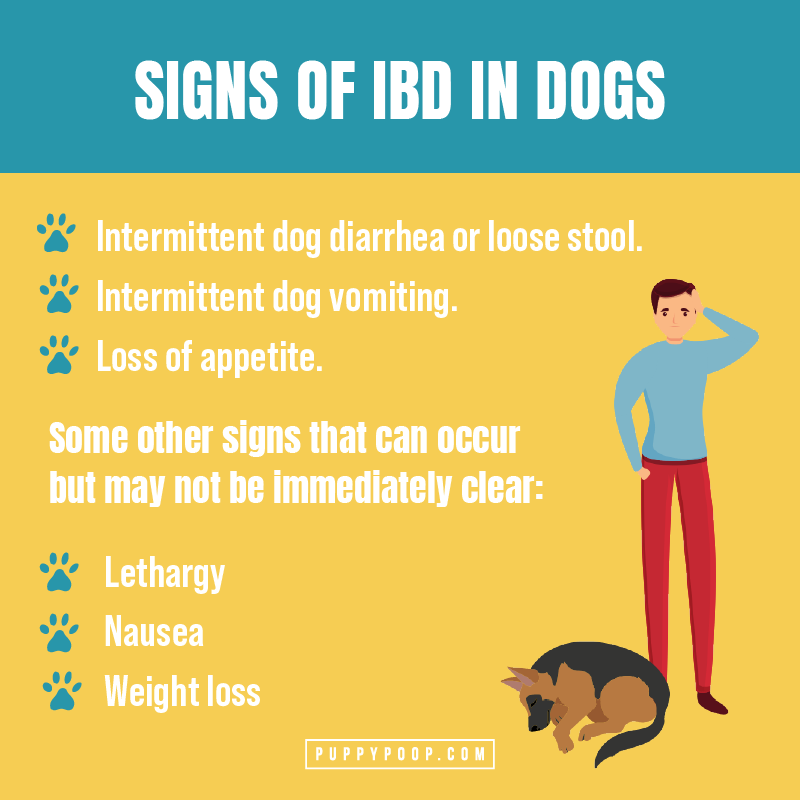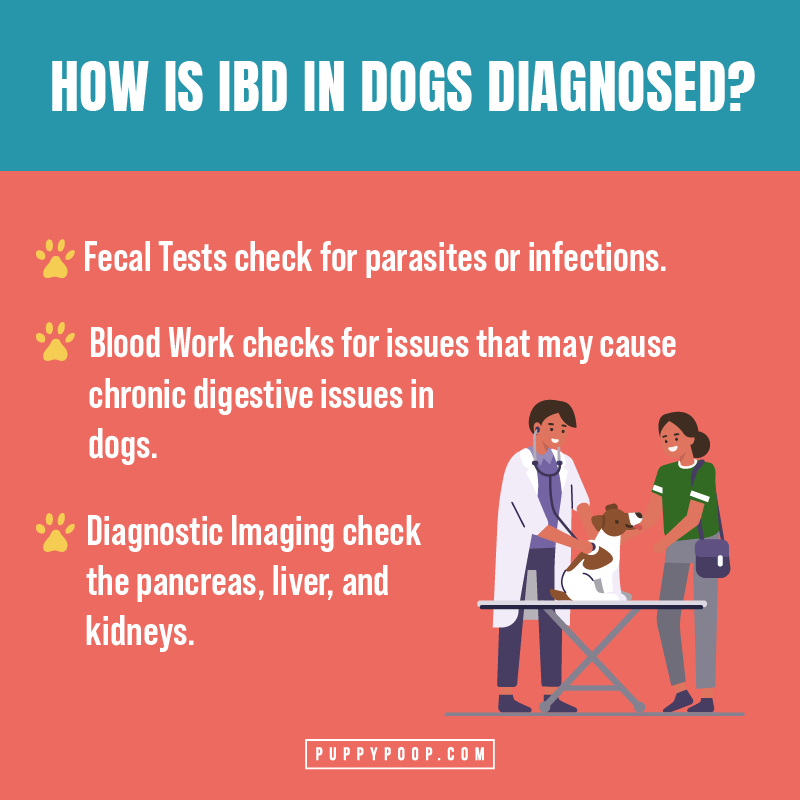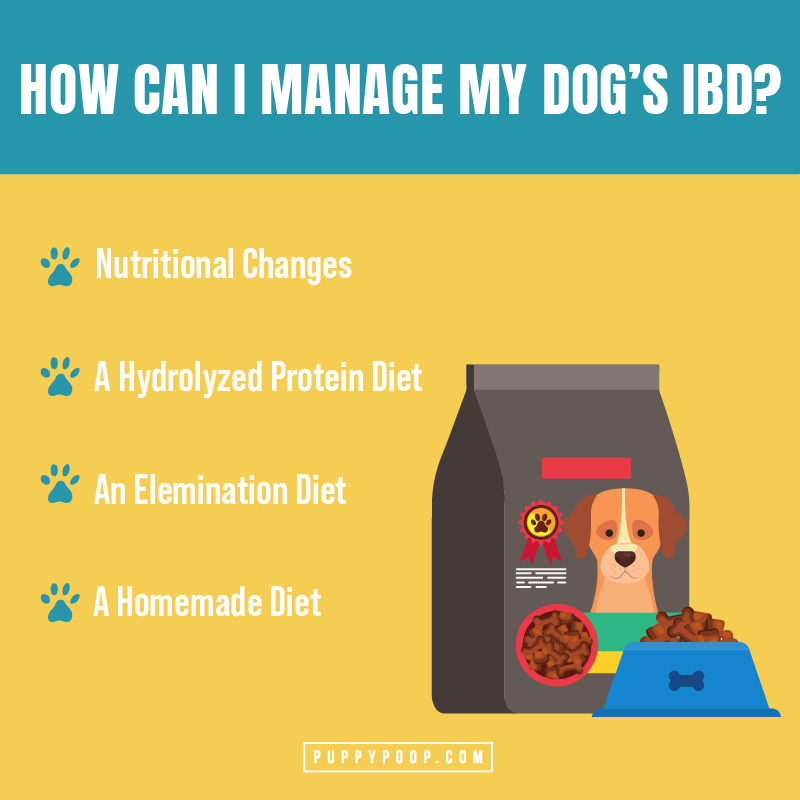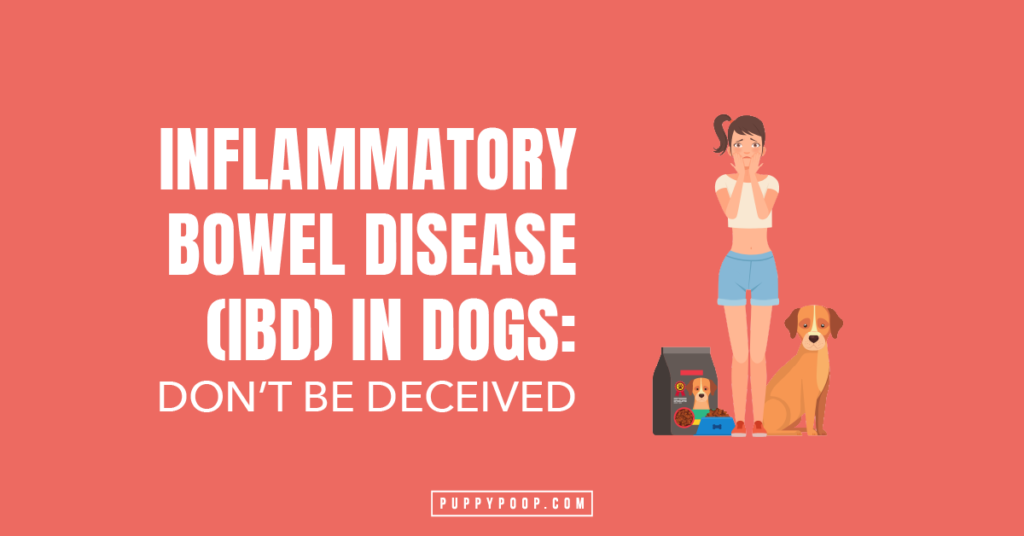Do you feel like your dog always has a stomach issue? It might be diarrhea, vomiting, or poor appetite, so are you always stressed about their health? It’s common to think that your dog may have eaten something they shouldn’t have since they often do that. But what if the diarrhea or loose stools stick around for several weeks? In this case, Inflammatory Bowel Disease (IBD) might be the culprit. So don’t let it deceive you and don’t brush it off.
What is Inflammatory Bowel Disease in Dogs?
Being a veterinarian does not involve playing with cute puppies and kittens! Adorable animals visit the vets every Inflammatory Bowel Disease (IBD) in dogs refers to a group of conditions that cause inflammation of your dog’s intestines. This can lead to chronic, intermittent gastrointestinal signs. Unfortunately, there is not one specific cause of IBD for dogs. It involves many factors, including your dog’s genetics, lifestyle, diet, and microbiome. Any dog may develop IBD, but certain breeds are more likely to experience it.
Breeds likely to experience IBD include:
- Boxers
- English Bulldogs
- German Shepherds
- Irish Setters
- Rottweilers
- Shar-Peis
- Wheaten terriers
With canine IBD, the intestines become invaded by inflammatory cells. These change the structure of the intestines. In turn, your dog will find it more difficult to digest their food and absorb nutrients. Due to these factors, IBD can also lead to increased permeability within the gut lining. This allows proteins, allergens and toxins to leak out of the intestines. In doing so, they make their way into your dog’s bloodstream.
Signs of Inflammatory Bowel Disease in Dogs
Many signs of IBD in dogs can mimic any other episode of dog diarrhea or vomiting. The key difference with dog IBD versus one-off loose stool is the timing of these signs. With IBD, your dog may experience chronic digestive health issues. These include dog diarrhea or loose stool. But these signs are usually ongoing for 3 weeks or more.
The most common signs of IBD in dogs include:
- Intermittent dog diarrhea or loose stool
- Intermittent dog vomiting. Your dog may vomit yellow liquid (‘bile’) or undigested food.
- Loss of appetite. With intermittent signs of diarrhea or vomiting, your dog may develop a poor appetite.

Some other signs that can occur but may not be immediately clear:
- Lethargy
- Mild nausea. This may not occur often and may not be very obvious. Dogs that are nauseous often drool, lick their lips, and may swallow often.
- Weight loss. This is common with severe digestive issues that affect nutrient absorption.
IBD and its affect on your dog’s intestines
IBD can affect the small intestine, large intestine or both. Whichever is affected for your dog will determine the signs your dog may show. The small intestine is important in nutrient absorption. Thus the dog’s ability to absorb nutrients (malabsorption) will be impaired if the small intestine is affected. With malabsorption, the food your dog eats will ferment. This can lead to a production of gas within their intestines.
If IBD is affecting your dog’s large intestine, this will lead to colitis. With colitis, the most common sign is dog diarrhea. Dogs may have an increased urgency to ‘go’, may strain, and bright red blood and/or mucus may be in their stool.
IBD in dogs causes the intestine to be more permeable. It also allows allergens into the bloodstream. Your dog may develop an immune response to these allergens. If so, this leads to allergies or an immune-mediated reaction.
How is Inflammatory Bowel Disease in Dogs Diagnosed?
Diagnosing IBD is not simple! Intestinal biopsies are necessary to confirm IBD. Endoscopy is often used, which requires general anesthesia. But this is an invasive and costly procedure. Thus your veterinarian will often try ruling out other issues first.
Your veterinarian may consider IBD if your dog has been experiencing persistent diarrhea and vomiting for a few weeks. After a physical exam, your veterinarian may begin by performing a general workup.
The general workup can include:
- Fecal tests to check for parasites or infections.
- General health blood work. This checks for issues that may cause chronic digestive issues in dogs. Examples include anemia, liver disease or renal disease.

Tests
Depending on your dog’s clinical signs, they may need more specific tests. These can assess levels of pancreatic enzymes, vitamin B12, folate, and trypsinogen. These tests can help localize the affected area in the gastrointestinal tract. Diagnostic imaging, with radiographs, ultrasound, or even CT scans, may also be performed. These allow your veterinarian to check the pancreas, liver, and kidneys. These can also help to check the health of your dog’s intestinal lining.
Treatment
IBD diagnoses in dogs are most commonly characterized according to what treatment the dog responds to. Treatments include diet change, antibiotics or steroids. Some cases of IBD in dogs are considered idiopathic (no known cause). To understand the cause of IBD, your veterinarian may recommend some therapy trials if your dog is otherwise well. They may begin with a diet trial using an elimination diet or a hydrolyzed protein diet for 2-4 weeks. If no improvement occurs with a food trial, antibiotics may be prescribed for 3-4 weeks. Examples used include tylosin or metronidazole. If there is still no resolution, steroids (like prednisolone or budesonide) or other immunosuppressive drugs (e.g. cyclosporine), may be tried. These decisions may vary depending on what you and your veterinarian decide is best for your dog.
How Can I Prevent IBD in My Dog?
The prevention of IBD is unfortunately not possible. But monitoring your dog’s bowel habits is crucial to catching the signs of IBD early. Earlier detection enables earlier treatment.

Intermittent gastrointestinal issues that seem to come and go often can deceive you. The first step is to create a simple journal to track your dog’s digestive status. Photos and notes are a great way to do so. These can help identify and manage a problem like IBD. Logging these issues can also help your veterinarian understand what’s been going on. It can also help you find trends and get ahead of any flare-ups. Download the DIG Labs Digestive Health Check app to do all this seamlessly from your phone!
How Can I Manage My Dog’s Inflammatory Bowel Disease?
While IBD doesn’t have a cure, it is possible to provide treatment. The goal of IBD treatment is to reduce common signs. These include dog diarrhea, dog vomiting, and inflammation of the intestines. The options vary depending on the cause, which part of the intestines is affected, and which form of IBD your dog has.
Nutritional change is key in treating most cases of dogs with IBD. This is especially true in cases of food-responsive IBD. About 40-60% of dogs and cats with chronic intestinal issues usually improve from a change in diet.
Your veterinarian may prescribe one of the following three diets:
- A hydrolyzed protein diet
- An elimination diet
- A homemade diet designed by a veterinary nutritionist.
Removing excess fat in your dog’s diet can also help reduce signs of IBD. Most dogs with IBD do well with a diet change. But many still need extra support through other supplements or medications.
A recent study has found that dogs with IBD have lower concentrations of short-chain fatty acids. Certain microbial families produce these during digestion. They have beneficial effects in the gut. Certain ‘friendly’ gut bacteria, such as Faecalibacterium spp. and Fusobacteria, have also been found to be decreased in dogs with IBD. Extra fiber and prebiotics may increase the production of short-chain fatty acids. By increasing these, we can boost certain beneficial bacteria in the gut. Probiotics and fecal transplantation may also be useful in some cases of canine IBD. They support the gut microbiome.
Management options will depend on test results and response to therapy trials. Lifelong nutritional changes or low doses of medications are necessary for most dogs. Whichever will be used again depends on their response to treatment trials. But with increasing understanding of the impact antimicrobials have on the dog gut microbiome, there is a shift away from recurrent or long-term antimicrobial use. Some dogs may also need vitamin B12 (cobalamin) supplementation. Whether they need this or not is based on their blood levels.
Complications of Inflammatory Bowel Disease in Dogs
Undiagnosed and untreated IBD may lead to further health problems for your dog. These may include secondary bacterial infections, nutritional deficiencies, organ degeneration and intestinal cancers. Severe cases can also lead to protein loss. Recognizing the signs of IBD early can help reduce the chance of these complications occurring for your dog.
If your dog has IBD, or you suspect your dog may have IBD, the best thing you can do is to detail their digestive issues. This includes stool photos, food reactions, or other symptoms. Keeping a diary of your dog’s bowel habits can alert you to trends. It may also help you avoid flare-ups in the future. It’s best to give your veterinarian the most information possible. This will allow them to make the best diagnosis and management decisions for your dog. IBD can be frustrating for both you and your dog. But monitoring their stools will make things more manageable.
Get the DIG Labs App
Download the free DIG Labs Digestive Health Tracker to get personalized insights and recommendations for your dog based on their stool.

